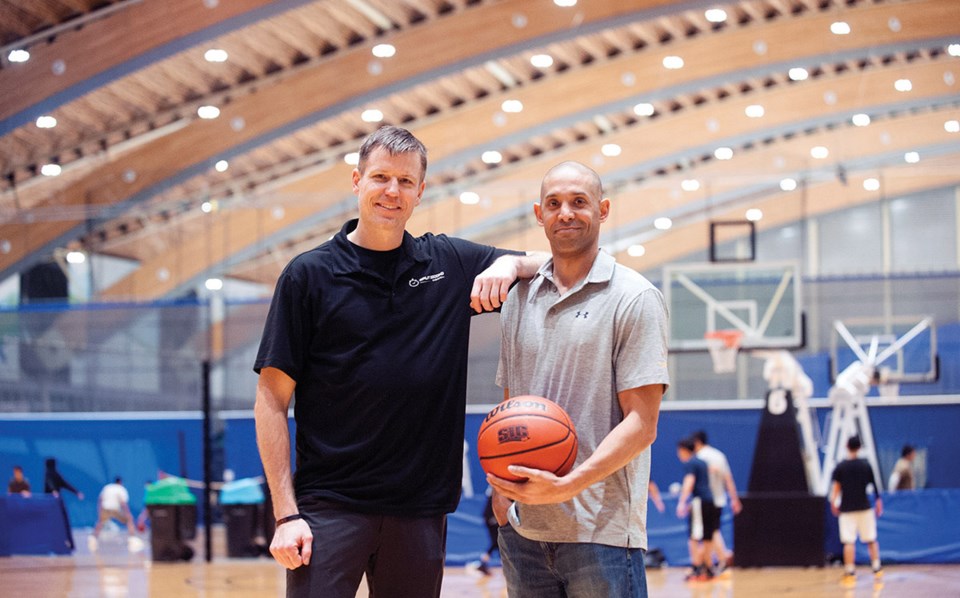Editor:
As the pandemic lingers on and the consequences of the measures taken to protect us from COVID-19 are becoming increasingly evident, an alarm is being raised by parents and coaches of young athletes.
Our coalition of youth sport organizers is asking that we turn our attention to an epidemic unfolding in homes and schools around the province. Namely, the steep and distressing decline of the mental health and well-being of our youth as a direct consequence of losing competitive sport in their lives.
The government has put tight constraints on youth sports since the start of the pandemic, banning competitive play for all but a couple of months in fall 2020 and only allowing for very restricted practising and training for the rest of the year.
Athletic programming for youth may be viewed by some as a privilege that can be easily set aside for the greater good during our struggle to contain the spread of COVID-19, however, a closer look at the facts and misconceptions should cause Dr. Henry and her team to pause and take a closer look.
There are two key questions that must be asked: first, are the constraints put in place by the government based on current and rigorous scientific data? And second (and equally important), what are the secondary impacts of limiting youth sports?
According to our email correspondence with a head health officer at Vancouver Coastal Health in January, “there has been no significant transmission among youth in organized sport in the VCH region.”
In her media addresses, Dr. Henry has also made it clear that youth sport is not identified as a significant cause of community COVID-19 transmission across B.C.
Further, there is no study or research the government has pointed to that suggests responsibly organized competitive sport presents a risk to youth and/or the community. And lastly, our youth sports coalition is also unaware of anything akin to an “outbreak” due to youth participation in sport in B.C. In fact, in the fall of 2020, tens of thousands of athletes in B.C. and many times more across all of Canada were engaged in competitive sports. Even with all of this activity, there was not any significant number of transmissions that could be traced back to on-court/field/ice activity.
In the meantime, with restrictions around youth sport and competitive play in tight lockdown, we are beginning to understand that preventing youth from playing the games they love is having real and demonstrable consequences for children’s mental health and well-being.
Individual training and practice may be sustainable in the very short run, however, over the medium and long term, athletes limited by tight restrictions can hit development walls and quickly become disengaged. It may be tempting to assert that this is not a matter of high importance in light of larger concerns and is certainly not in the “life or death” category, however, many parents, athletes, coaches and sports clubs would make statements to the contrary.
A May 2020 study by the University of Wisconsin looked at youth sport in the wake of COVID-19 restrictions. With a sample group of more than 13,000 youth athletes, the study found that 40 per cent of the group reported moderate to severe depression symptoms. Anecdotally, coaches in B.C. are reporting increasing incidents of athlete disengagement and withdrawal while parents are voicing concerns around mental health, self-harm and suicidal thoughts among their children.
It is critical to advocate for this segment of our population. We are concerned that the current restrictions cannot be justified on scientifically sound medical reasons. This is not acceptable when we know there are very real mental health consequences for our youth.
We are advocating for a safe, measured return to Viasport Phase 3 activities in B.C.
For those unfamiliar with those parameters, it allows for a broader training and practising routine, along with limited, regional competitive play without spectators, team travels or carpooling. We believe this represents a responsible, measured approach.
The mental health of our young people needs to be given the attention it deserves.
Eric Butler
Editor’s note: Eric Butler is a concerned parent of three school-aged children, coach and leader of a youth basketball training organization. He has joined together a coalition of several clubs across different youth sports representing thousands of B.C. families to form Parents Athletes Coaches and Clubs for Responsible Return to Youth Sport. Questions or comments can be directed to Eric at [email protected].

